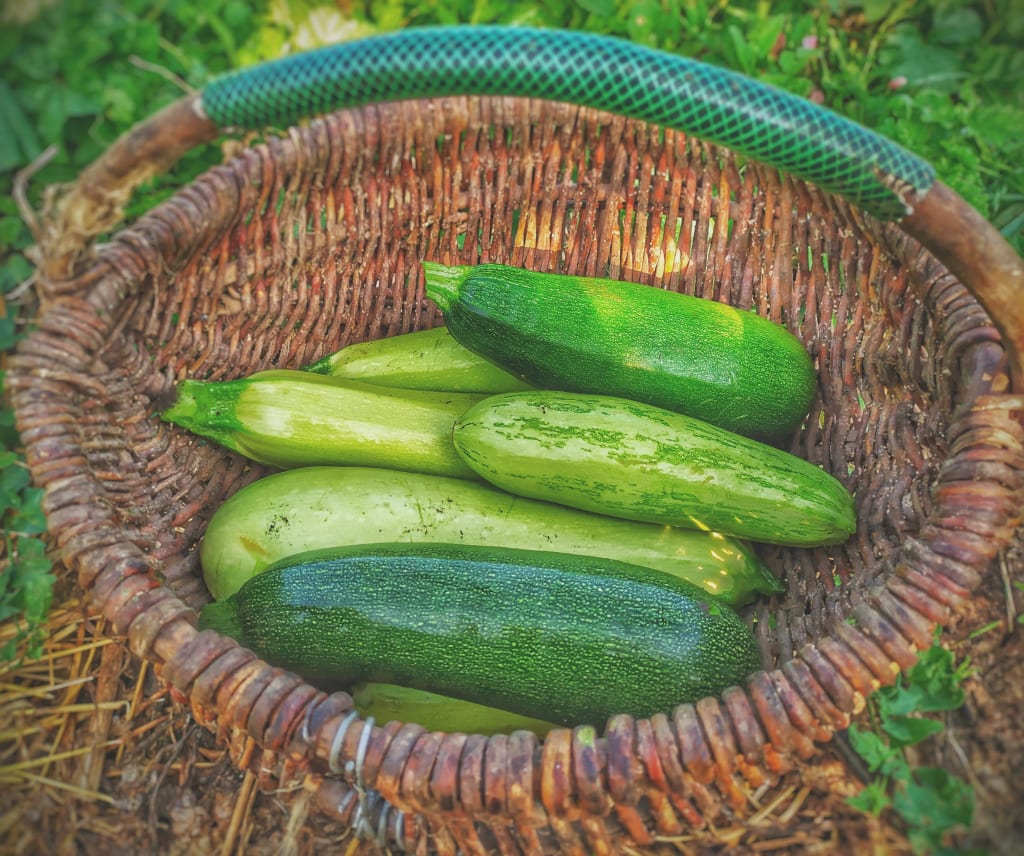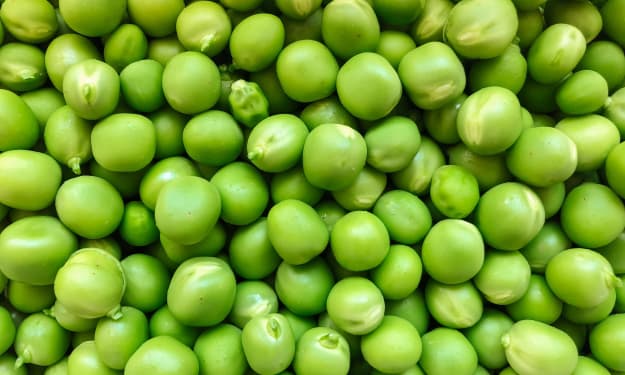
zucchini
Zucchini, from the Cucurbitaceae family, is a very easy summer squash to grow. Native to Central America and Mexico, it was brought to the United States by Italian immigrants in the 1920s. Some of its most popular varieties include golden zucchini, dish zucchini, yellow straight-necked zucchini, and yellow curved necked zucchini.
Zucchini grow best in warm, frost-free climates and thrive in rich, moist soil with a pH of 6.0 to 6.5 (slightly acidic). Zucchini plants are dense and can grow to 1 to 3 feet tall, although some species may climb along other plants as vines. In addition to the actual fruit (botanically speaking, zucchini is a fruit), its large yellow trumpet-shaped flowers can also be eaten.
Although zucchini can grow to large sizes, smaller to medium zucchini are more palatable. The larger the size of the zucchini, the harder the flesh, the more seeds, and the less palatable it is.
What are the benefits of eating zucchini? The use of zucchini is endless because it is so practical that it can be incorporated into many recipes, such as in soups, salads or omelettes, as a side dish to meat dishes, or as "zucchini fries" with onion sauce as an appetizer. Want a healthy pasta with no grains or wheat? You can use a vegetable peeler to make zucchini noodles, which are just as al dente as regular pasta.
Nutritional value and efficacy of Zucchini
The nutritional value and efficacy of zucchini will surely impress you. It is very low in calories (just 17 calories per 100g), high in fibre and contains no cholesterol or unhealthy fats. It is also rich in flavonoids antioxidants such as zeaxanthin, β-carotene and lutein, which have free radical killing properties and play an important role in delaying ageing and helping to curb disease.
Zucchini is also an excellent source of potassium, a heart-healthy nutrient that helps regulate your blood pressure levels and counteract the effects of excess sodium. It is also rich in B vitamins, folate, vitamin B6, vitamin B12 and vitamin B2. Zucchini contains several minerals such as zinc and magnesium, both of which are valuable in ensuring healthy blood sugar regulation -- and thus very beneficial for people with diabetes. It also contains many basic minerals, such as iron and phosphorus.
It's important to remember that some zucchini grown in the United States are genetically modified, so it's best to buy organic. Like other members of the cucurbit family, zucchini contain lectins, plant proteins that can have adverse health effects, so be sure to peel and seed them before cooking.
Nutritional value: Zucchini, also known as melon and white melon, is rich in nutrition and unique in flavor. It is one of the common inexpensive vegetables in the market. According to traditional Chinese medicine, zucchini has the functions of clearing heat and diuresis, removing annoyance and thirst, moistening lung and relieving cough, reducing swelling and dispersing knot, and can assist in the treatment of edema, abdominal distension, polydipsia, sores, nephritis, cirrhosis and ascites. Zucchini contains a kind of interferon inducing agent, can stimulate the body to produce interferon, improve immunity, play the role of antiviral and anti-tumor, anti-cancer effect. Zucchini is rich in potassium, which can help prevent stroke and heart disease.
What's not to like about zucchini? This versatile summer pumpkin is botanically a fruit, but it is usually considered a vegetable. It is a must for your garden and dinner table. It's easy to grow, requires very little care, but provides a delicious and versatile fruit to add to all kinds of recipes, and can even be turned into vegan noodles!
What are the benefits of eating zucchini? The nutritional value of zucchini is remarkable -- it is rich in potassium, B vitamins, dietary fiber, and antioxidants, all of which can bring great benefits to your health. It may even help regulate blood sugar levels, which could be very beneficial for diabetics.
About the Creator
Heather
Share the nutritional value of fruits and vegetables!






Comments
There are no comments for this story
Be the first to respond and start the conversation.